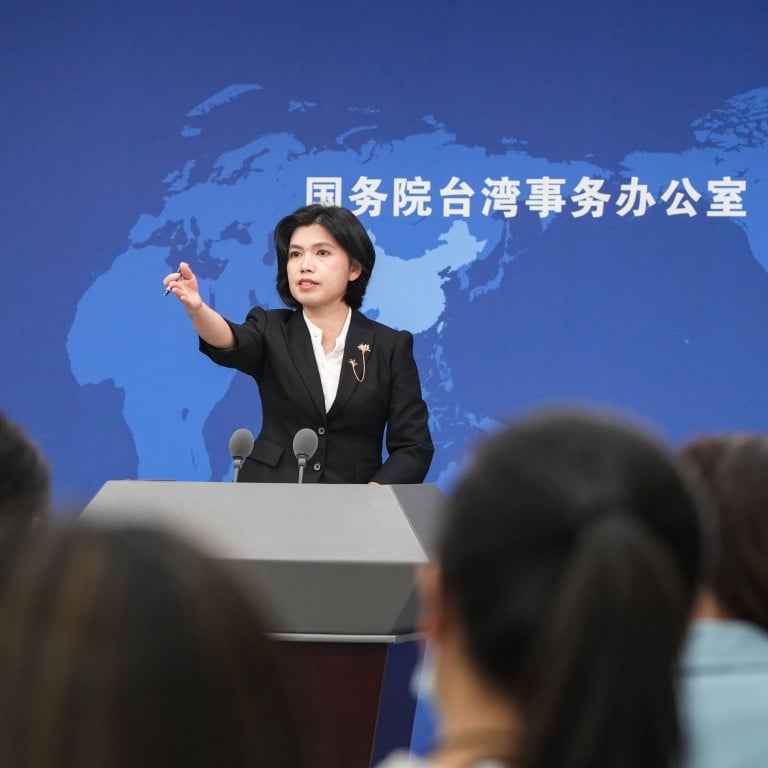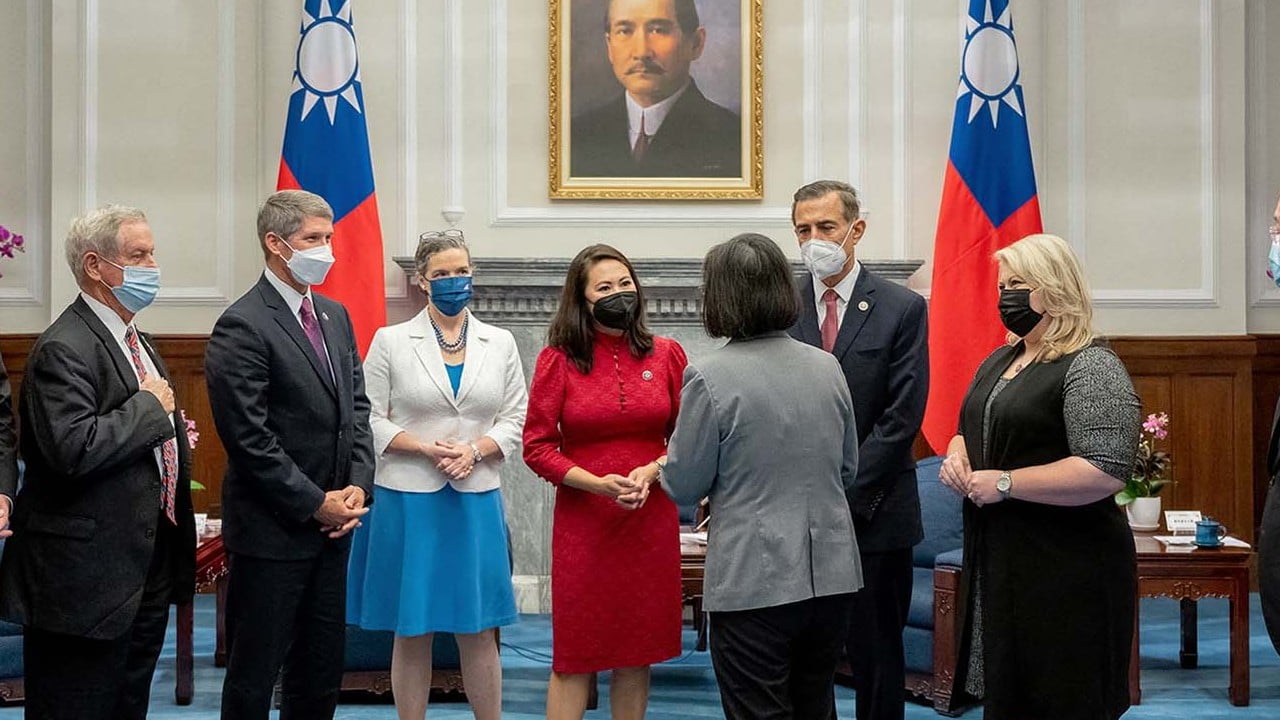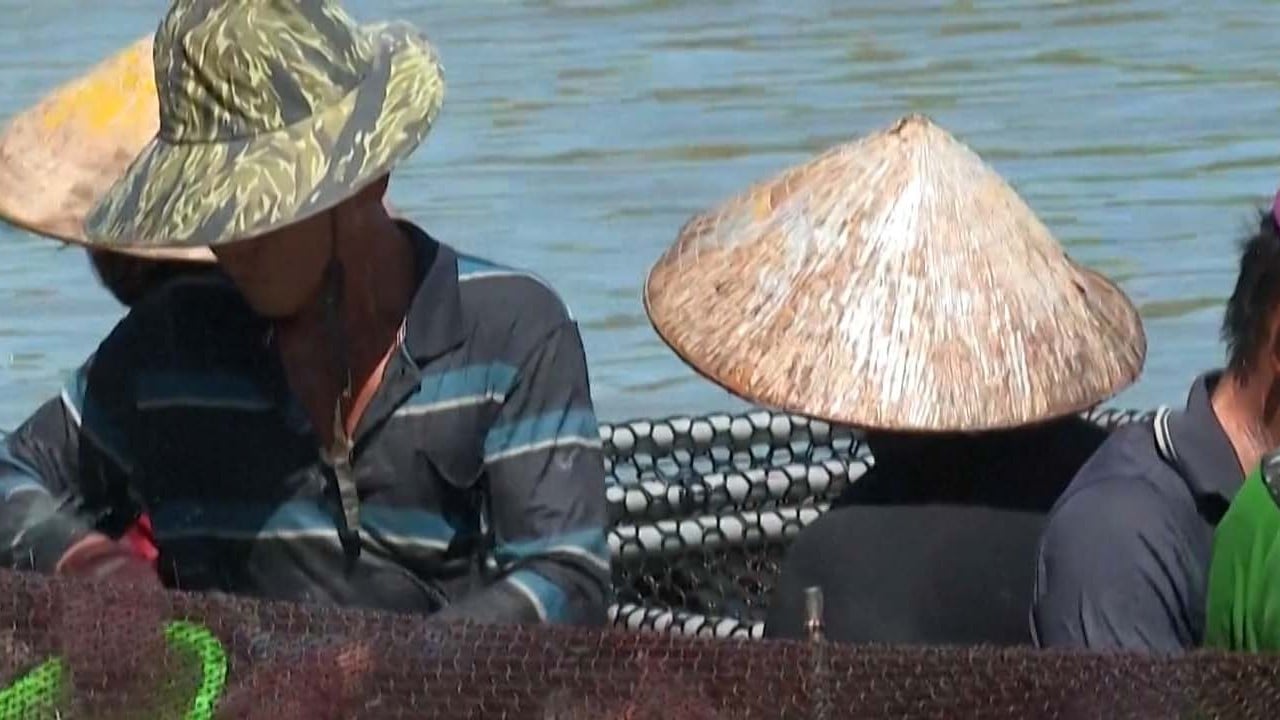
Beijing to toughen punishment for Taiwan’s pro-independence forces, officials say
- State Council’s Taiwan Affairs Office stresses peaceful reunification with the island still Beijing’s top priority
- Beijing is unlikely to specify circumstances for taking ‘non-peaceful’ action against Taiwan, expert says
Beijing will continue to step up punishment for Taiwanese pro-independence forces, while stressing that peaceful reunification with the island is still the mainland’s top priority, officials in charge of Beijing’s Taiwan policies said on Wednesday.
Biden says US troops would defend Taiwan from attack by Beijing
The sanctioned Taiwanese officials and their family members are not allowed to enter mainland China, Hong Kong or Macau, and organisations they are affiliated with are banned from cooperating with mainland organisations or individuals.
Zhang Wensheng, a deputy dean at the Graduate Institute for Taiwan Studies at Xiamen University, said Beijing would introduce new rules to punish Taiwan independence forces, which might include amendments to the Anti-Secession Law to outline detailed punishment, and add articles in the criminal law to provide a legal basis for such punishment.
For years, there have been calls to amend the Anti-Secession Law, which some critics have said is too vague, especially the clause concerning the use of “non-peaceful” means. But Zhang said it was unlikely that Beijing would specify the circumstances under which force would be used.
PLA leaders unlikely to resist a move by Xi Jinping on Taiwan, US analyst says
Mainland China and Taiwan split in 1949 at the end of a civil war, when the Kuomintang was defeated by Communist Party forces and fled to Taipei. Beijing sees the island as part of China and has not ruled out the use of force to take control of it. Most countries, including the US, do not recognise Taiwan as an independent state. Washington, however, opposes any attempt to take the island by force.
Following Pelosi’s visit, the People’s Liberation Army carried out drills around the island, with its fighter jets and drones crossing the median line – the de facto border between Taiwan and the mainland.
But Zhu and other mainland officials said Beijing’s actions had only targeted external forces and the pro-independence camp, rather than most Taiwanese people. Mainland actions would be “precise” in hitting the right target, they said.
“We are willing to strive for the prospect of peaceful reunification with the greatest sincerity and best efforts,” said Ma Xiaoguang, another spokesman from the Taiwan Affairs Office, who repeated a pledge made in an official paper on Taiwan policy released by the office last month.
“It must be emphasised that China’s reunification will not harm the legitimate interests of any country, including its economic interests in Taiwan, but will only bring more development opportunities to all countries.”
Ma said that the Taiwan issue could be resolved under the “one country, two systems” principle – the governing system adopted for Hong Kong and Macau.
“Taiwan can implement a social system different from that of the mainland,” he said.
Ma also said a series of measures had been introduced since 2018 to promote economic cooperation with the island, including trade in agricultural products.
Official communications between mainland China and Taiwan have been suspended since 2016, when Tsai Ing-wen from the Democratic Progressive Party took office as the island’s president.
Tsai’s predecessor, Ma Ying-jeou, held a landmark meeting with Chinese President Xi Jinping in Singapore in 2015.
Qiu Kaiming, head of the research department at the party’s Taiwan Work Office, said that meeting showed Beijing’s “strategic flexibility” towards Taiwan.
“The meeting showed the world that Chinese people on both sides of the strait are wise and capable enough in solving our own problems,” he added.
Additional reporting by Amber Wang



